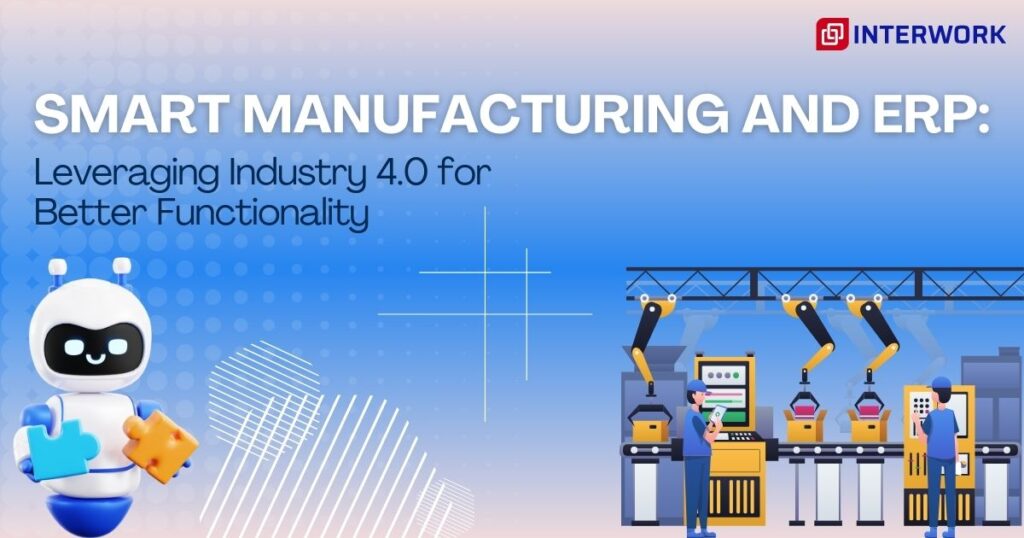
In the current world of dynamic industrial environment, Smart Manufacturing integrated with ERP systems brings the time of change. Fundamentally at the core of this change process is Industry 4.0 a revolution that brings in the use of internet to create industries that operate on their own with the ability to make decisions and respond to their environment.
Understanding Industry 4.0
Industry 4.0 is considered the fourth Industrial revolution highlighted by the connection of information digital structures or cyber-physical systems, the internet of things and cloud computing. This makes it possible for machines, devices, and systems to interact and collaborate on their own without human intervention resulting in increased efficiency, flexibility, and personalization of the processes of production in manufacturing industries.
The Role of IoT (Internet of Things) in Smart Manufacturing
- IoT means manufacturers have privileges to control production lines with better observation.
- Automated systems gather data on the conditions that exist at the time, such as the working condition of equipment, energy consumption, and product quality.
- The use of big data in analysis allows for anticipation of when maintenance will be necessary for improving productivity.
- Anticipative decision-making improves the flow of the organization’s schedules and constraints and minimizes idle time on the machine.
Harnessing AI (Artificial Intelligence) and Machine Learning
- AI and Machine Learning examine large datasets and find the relationships between them.
- These technologies adapt the production parameters in the most optimal way possible.
- Ongoing training enhances precision in quality control as well as demand estimation of the products.
- Artificial Intelligence advances the operations and decision-making mechanisms of organizations.
Integration with ERP Systems
- Strategic Alignment: Connects manufacturing operations with the supply chain, financial affairs, and customers.
- Operational Efficiency: Organizes and regulates work and usage of resources within an organization.
- Data Integration: Synchronizes actual time data from different departments and functioning.
- Centralized Management: Enables the collection of data and makes decisions at one central place.
- Enhanced Visibility: Provides the stakeholders with definite information on operations vital for decision-making.
- Scalability: Total support of organization growth by the ability to address such factors as growing amount of data or complication of the organizational operations.
Overcoming Challenges and Embracing Opportunities
- Industry 4.0 involves interconnected devices and systems, increasing susceptibility to cyber threats such as data breaches and malware attacks.
- Organizations should implement comprehensive cybersecurity measures including encryption, multi-factor authentication, and intrusion detection systems.
- The adoption of Industry 4.0 technologies requires a skilled workforce proficient in data analytics, AI, IoT, and automation.
- Organizations should invest in training programs and workshops to equip employees with the necessary skills and knowledge.
- Many organizations face the challenge of integrating legacy systems with modern Industry 4.0 technologies.
- Robust cybersecurity measures are essential to protect sensitive data and ensure the integrity of interconnected systems.
Conclusion
Smart Manufacturing as well as ERP systems are the headway of Industry 4. conveys the changes that the digit 0 brought into modern manufacturing in the 0’s. Using concepts such as IoT, AI, and ML, businesses can ensure optimal performance, consistent production of high-quality goods and services, and satisfying the customers. Adapting to this new model entails elements of strategic planning, the anticipation of making new, appropriate investment in digital tools, as well as the concept of innovation, especially on digital productions for existence in digital landscape.
